HIRISE, is my acronym for the loose ‘coalition’ of forces from Hezbollah, Iran, Russia, Iraqi Shia militias, Syrians still backing Assad, and Egypt that have collectively kept the Assad regime going, and that control various parts of what used to be Syria.
****
The ‘new’ HIRISE developments in Libya point to the spread of the complex region wide wars that are now a permanent state in our current era of a slow-motion great depression.
Egyptian thug ruler Sisi has just threatened to intervene if the Libyan government continue their offensive saying “Sirte and Jufra are the red line.” so naturally there has been a response from the Libyan government
I don’t think a major war is imminent but if a major war eventually breaks out, after the years of slaughter in Syria, it wouldn’t surprise many in the region. I wonder how many Marxists it would surprise?
No doubt ½ theorists are all aware that penniless Putin-not-quite-Tsar of all the Russians, has sent a small ‘mercenary’ (Wagner group) air force contingent to a Libyan base and that those aircraft have overflown Sirte.
Then a couple of days ago the Egyptian coup leader Sisi declared this Jufra air base right at the center of Libya part of his ‘red line’ Club Med Protectorate. This coalition of the willing anti-democrats includes the UAE as a banker for the project and has both Saudi and even French support. This coalition is defying the UN arms embargo, and the UN recognized government, protected as it is by Turkey (supported by Italy).
Having lost the fight for the whole of Libya another enclave ‘solution’ is being established with a foundation of Russian air power. The inland air base and the city of Sirte on the coast splits the country. Libya is currently being broken into chunks -like Syria, Georgia, Moldova and Ukraine have been from previous renditions of the Putin playbook.
Putin obviously has a belief in Russian ‘greatness’ and the basic method of war fighting that made it a great power. Peter, Catherine even Stalin and now Putin apparently. Grab and hold territory seems to be about as crude as it gets. He knows how the territory he controls was historically established; looks like he didn’t get the memo about this being the 21st century. But I suppose he could reason that if it’s good enough for Israel to annex other people’s land…
In the 21stC, long after it was well known that nation’s want liberation and ‘countries want independence’, the democratic revolution for the Middle East and North Africa (MENA) is being vigorously resisted by the fascists in a peculiar new COW.
The Kingdom of Saudi Arabia (KSA) and the UAE have got on board with Russia and Egypt and at the same time have backed right off in the case of Syria. The KSA having threatened the country of Qatar (that was then granted complete protection by the Turks as a response) and then after murdering Khashoggi in Turkey have fallen out with Turkey completely. They know that Turkey is serious about bringing their own system -democracy- to Syria. The ruling elite of the KSA and UAE know what’s in their interests and it’s not democracy. Wahhabi extremism is however being wound back in the UAE and the KSA. Even as the hated Shia are still being targeted in the northern parts of the country and down in Yemen.
Predictably, the currently in power cliques are fighting back so that gangster-ism is preserved in these countries just as it is being extended or more accurately deepened across the world in places like Hong Kong. ‘All political power grows out of the barrel of a gun.’
Push is at shove and western leadership is not up to the task of effectively resisting the gangster regimes, so western interests that actually start with the spread of the democratic revolution are and will continue to suffer. The ‘west’ is a headless chook and sanctions are virtually all the current western ruling elites are using to push back. Like a Maginot line policy, it can’t work! The US military sits brooding on the sidelines while the enemy flaunts their interventions and simultaneous shameless denials.
Putin started his rule by turning the Chechen capital of Grozny to rubble; and then running the whole region as a gangster region. He couldn’t hold all of the Ukraine so he simply invaded and took what ‘Russian sectors’ he could get hold of. He did the same earlier with Georgia when the Georgians wanted to stop gangsters operating in their country. It’s what he has done in Syria where he has run up against an immovable opponent in democratic Turkey. Putin can’t put in the effort that the democratic Turks can and do, so thankfully, this ‘problem’ of the democracy seeking Syrian peoples -now with a people’s army backstopped by Turkey- won’t go away.
Putin can and does make sure that they do have to put in that huge effort for every square kilometre.
Putin thinks he’s a world scale map maker. He isn’t. He’s a slow acting poison that’s destroying the Russian economy. He makes enemies on every border and he has distant but unstable ‘friends’.
Eventually, Europe will have to accept the price that must be paid for it’s clear self interest and effectively help Turkey as it continues pushing back against Russia. Eventually, so the theory goes, no respectable country will do business with the Russians and a repeat of the collapse of the USSR will unfold. But how long that takes is an unknown known.
How many ‘non-respectable’ countries will do the required business is a relevant factor. How long can the fascists in countries like Egypt and Iran keep their people terrorized and prevent them achieving democratic norms? Democratic revolution for the MENA is underway and will not be stopped because draining this swamp is the big picture. Syria has shown the world what preventing democracy looks like and does so is a direct comparison to the US enabling democracy in Iraq by destroying just the mechanized aspect of the Baathist army. That revolutionary destruction still left the vast bulk of the trained human element of that fascist army still around for the untrained Iraqi masses to take on over a protracted period of war. There had not been the years of systematic fighting comparable to the annihilation of the Nazi troops in WW2 and of course there had to be. These fighters were not just going to vanish. BUT the Iraqi peoples could now realistically deal with them and they did! All through this period the rotten western liberals lamented the new conditions in Iraq. Lamented the terrible mistake of this war of liberation! We can all see the price that dealing with these fascists cost in an inescapable war that democrats must wage and we can all see the comparison with not destroying the mechanized element as Obama who agrees with Trump demonstrated to the world in Syria!
Jump to 2020 and ‘In late May, USAFRICOM reported that at least 14 MiG-29s and several Su-24s were flown from Russia to Syria, their Russian markings were painted over to camouflage their Russian origin! These aircraft were then flown into Libya in direct violation of the United Nations arms embargo.’ https://www.africom.mil/pressrelease/32941/new-evidence-of-russian-aircraft-active-in-li
This is a textbook Russian deployment to oppose democracy. These airplanes are more than ‘ trip wire’ platforms and they will be at work soon enough killing any advancing revolutionaries. The Russian and the Egyptian fascists know they will be fighting ‘soon’. When they eventually start their attacks the danger of a clash with the Turks-or the US-is very real. So they would rather win by bluff. This is push and shove enclave building! But if something does go wrong what then? Would this spread a consequence back to Syria? Who knows. Often enough ‘from little things big things grow’ so we’ll all watch this space with more than just a little interest.
I for one hope something does ‘go wrong’ because it’s better to fight now than to let the Russians and the Egyptians take over half of Libya (and the oil rich half at that).
It seems that the Turkish ‘push’ in defense of democracy has brought on the anti-democratic shove back and the big picture for the MENA is all moving along as not much more than another front to the Syrian adventure for Russia. All just another logical step for the Russian military adventurers. But in 2020 NATO is split and the US is openly in LA LA land with a self obsessed POTUS. The prize for Russia could be seen or imagined to be potentially very big and the UAE and even the KSA is footing the bill no less. That thinking is a total illusion but look at the track record of Russian war making since Putin took charge. His type rather obviously sees the world very differently than I do.
At this point (4 years into the ‘Wagner’ meddling in Libya) it resembles a rerun of the Syrian play of almost 5 years ago. So it looks like Putin is a reasonably predictable gangster and this time he has huge numbers of allied ‘infantry’ from Egypt ready to occupy. This time Russia is fully backed by the neighborhood power who has made everything crystal clear. This time it ALSO includes the KSA and the UAE and has French and even some US support -sort of- yet it’s almost the same beast that has turned vast amounts of built Syria to rubble. Russia is still central to the whole coalition project. Russia is a massive arms dealer! What could be better than another display and the constant rat-a-tat use of the expensive ammo? Not to mention some blood for the oil that Libya is full of, and boy are the Russian and Egyptians keen on that black ‘gold’.
It’s not really a major escalation to this part of this region’s wars at all. It’s as predictable as reminding everyone that Sisi and Putin are world class gangsters. It very effectively lays a godfather’s claim to dominating not just ½ the country of Libya but as time goes on it must be expected to build and eventually present a size 14 footprint in Africa where Russia is already, according to a US report ‘… the number one arms dealer
in Africa. Russia continues to profit from violence and instability across the continent. Russian government backed PMCs, such as the Wagner Group, are active in sixteen countries across Africa. It is estimated that there are about 2,000 Wagner Group personnel in Libya.
These Russian aircraft are being run by so-called mercenaries! Please…the Russian state even orders the murder of people on the streets of England! They have given the US a chance with silly denial to go to war against ‘mercenaries’ but they are dealing with Obama’s replacement, so that is no problem for them. The Russians will get away with this! The Club Med stop over in Syria now has a further purpose for transit movements even further south.
Now you would expect that if say Bolton, were POTUS, he would crush this move right now but HE was on the wrong horse from where he would have had to back flip, and anyway despite Bolton’s errors, alas Trump is POTUS. Macron and Trump! How bad can this get? The world still has 6 months of this farce and then we get Joe Alzheimer!
Speaking of Joe, why NOT select Michelle Obama for VP, and let Mr Charming loose on the Corona restrained campaign trail? After all Bill and Hillary almost pulled it off and there is this big Black Lives Matter movement to exploit. Every 4 years like clockwork, out comes the Democrat race card and they have played it early this time. Now given how much I despise his 8 long years of ‘anti-war’ Syria policies – of turning away from mass murder- I can’t say I’m keen for another dose in the form of Bumbling Joe and Mrs O. I am however fully prepared for it.
2 years into his term Joe Biden might even hand over the baton! Reagan didn’t though and they got through that. I’m keen to see what’s going to unfold over in LA LA land. We will all just have to wait to see the morning come when all these gifts to humanity have been unwrapped. How exciting for the hysterical anti-Trumpers. I expect even more idiocy from the US in the face of aggressive Chinese and Russian fascism. I expect nothing sensible from Boris and the Euro in-breds for a few years yet. In short, the government I expect to carry the burden is headed by Erdogan as has been the case for the last 4 years.
Anyway; so everyone currently knows what is going on in Libya and yet…silence.
The Egyptians are now standing up as a senior member of the messy HIRISE cow.
The US military in the region are furious but so what? The US military leadership are not happy they don’t want advanced Russian weapons systems targeting them from Libya! Trump’s military advisors may even think like Bolton and even be able to execute the back flip, but given Trump’s current anti-war stand they would be very slow to get any progress with him. I’m sure Trump could care less about a major point of conflict developing in Club Med land. He’ll easily resist getting drawn in and is to the extent that he would understand it, opposed to drain the swamp theory because he likes the old policies of backing strongmen. People that he thinks he can understand and do business with! His moves with Israel are the antithesis of a sensible retreat from the failed war for Greater Israel. Trump would rather go with the old policies that kept thugs like al Sisi in power, though even Sisi knows it’s against the US interests as famously spelt out by Condoleeza Rice in Cairo no less.
Something very dramatic would have to happen for Trump to win re-election from here. The only thing he has going for him is that he is up against Biden. But on the assumption that nothing that dramatic unfolds AND that Biden doesn’t just implode in some manner (and that can’t be ruled out) I’m calling Trump gone! Trump’s presidency will have ended before anything dramatic happens unless somebody spectacularly miscalculates and events run well ahead of all expectations.
Unfortunately as far as the next 2-3 year period is concerned this next 4 months is crucial for the MENA’s democratic revolution. Turkey is now carrying a huge load, and Egypt in throwing it’s ‘reserve’ strength on the scale is bound to bring on a cautious next step from Turkey. Actually, Erdogan has always danced this revolution backwards, while the HIRISE take the lead in direct opposition to the masses striving for the ‘Arab Spring’. He’s a conservative and has always behaved like one. No doubt with the rear view mirror he would have done things differently but so would ½ theorists! The real issue is how do we all stand now?
In this global supply chain era, the catastrophic disruption of this interestingly inconsistent pandemic has brought on an inevitable long term economic ‘unwinding’. That’s simply because capitalism in recession is musical chairs and the music has stopped; consequently who owns what is an international issue that is resolved right at the top of countries like Russia and China; just as is on display right now in Syria with their massive falling out at the top of the dung heap. It will take some time, and currently no one knows where this depression is headed off to; but as this all attempts to work through over the next few years the one clear issue that we can predict is that it just can’t be good news for the people’s in countries like Iran, Egypt, Syria etc. They are held in blatant open bondage while mass poverty now spreads in all directions. Once the sullen masses are on the streets again all bets will be off. But these ruling Cabals have focused their minds on how the Syrian tyranny has clung to power, as the alternative is a grim prospect for them. In the end these countries are ‘giants with feet of clay’.
The current gold medal of hanging onto power is the Syrian model. The anti-democrats around the world have learned by this example to resort to mass murder as rapidly and savagely as the Assad regime. Terror is now the first and only choice for Egypt and Iran and similar places. And they need a Godfather gangster supply chain like Russia has been!
A great example of the shrinking Russian play pond is the behavior of the thug leader of Belarus who has just arrested his political opponent prior to upcoming elections. They move on their opponents because they are worried! Police state Russia is rapidly heading in the same direction as Egypt and Iran.
Meanwhile al Sisi has simultaneously drawn a clear and blood red line that divides the ‘former’ country of Libya and denies the right of the current Libyan government to recover the rebellious east! Given the history of Obama and his Syrian red line – that turned out to be no line at all, there ought to be no mistake about what this statement is about. Turkey is standing firm but, without the US and a united NATO, is I think a little overstretched. If Egypt intervenes in a really big way, and I think that they have then Turkey will be stretched in just recovering Sirte. Uniting the entire country is beyond them at this stage. So without the US and Europe, Russia is now putting down it’s footprint!
Egypt and Russia (funded by the UAE) have in a business as usual manner for Putin effectively divided Libya with a small military force and the threat of a much larger one – all while talking about a political settlement. They are (on this front as they are in Yemen once again supported by the Saudi regime that is (or were) at one and the same time opposed to their Syrian HIRISE developments. Welcome to the MENA. HIRISE have established either a ‘state of war OR enclave’s; take your pick!’ This is the situation in another ‘civil war’ that they have been meddling in for 4 years. The Turks had turned up some months back and undone the situation and this is the response to that reversal.
From a revolutionary democrat POV (and in this region that means an Islamist POV) HIRISE elements can’t be permitted to get away with this if the revolution is to make any progress! But note this; the Islamists in the Libyan regime are so infiltrated with Al Qaeda sorts, that the Macron led French are stupidly collaborating with the Russians and the Egyptian thug regimes! Macron in this practice does not accept the drain the swamp theory! This is particularly confusing to me as the French have been involved with fighting Islamofascists all around Libya for some years now, with the Mali intervention being only perhaps the most public.
The Italians are on side with the Turks so NATO is thus divided! Unfortunately the latest nutter attack in England is from a young man with Libyan background! That is going to color public attitudes to Islamist led governments. Erdogan has got a hard row to hoe and is currently (because they are still at war) intervening against the PKK in Iraq. There are however good signs that the Kurds in Turkey want this war ended and the democratic developments they were enjoying under Erdogan resumed. I for one hope the PKK leadership wake up to themselves and stop their collaboration with Assad and return to the productive ceasefire that existed prior to the Syrian war destroying that better situation. The Kurdish peoples’ of the region have much to gain from the democratic revolution and nothing to gain from Assad style tyranny continuing to exist.

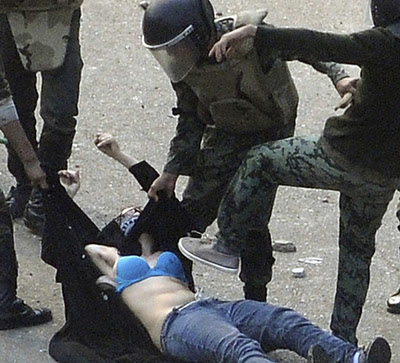
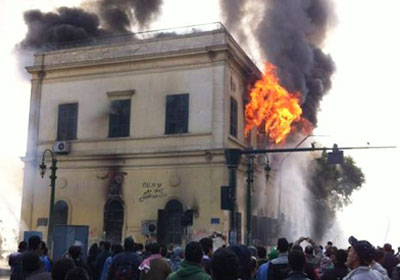

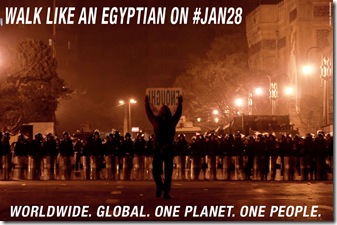
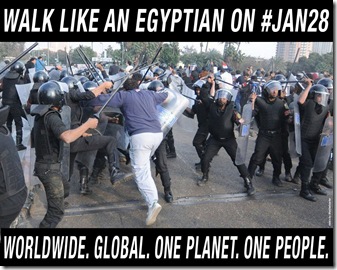
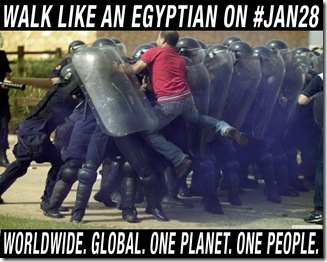

Recent Comments